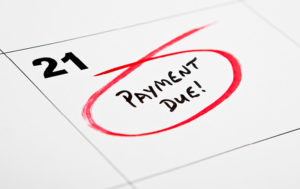
In a bid to tackle non-compliance of GST obligations from developers selling properties, the government has introduced a new measure that require buyers of new residential premises and subdivisions of potential residential land to make a payment of part of the purchase price to the ATO. This measure has been introduced in response to developers who sell properties at a price that reflects their GST obligations but dissolving their businesses before BAS lodgement to avoid passing the GST to the ATO.
The scale of the problems has grown significantly in the last decade and within the last 5 years these insolvent entities were responsible for around $1.8bn in debt written off, and at the same time claimed around $1.2bn in input tax credits. It is hoped that with the buyer remitting payment directly to the ATO instead of the developer as a part of the settlement process, less intensive compliance action will need to be taken and more GST revenue will flow into government coffers.
The proposed law does not apply to commercial residential premises or those new residential premises created through substantial renovation. It only applies to sales and long-term leases of new residential premises and potential residential land. Therefore, if you purchase such a property, you have an obligation to make a payment.
In a majority of cases, the payment to the ATO will need to be made on or before the date of settlement. The payment is dependent on the contract price for the property and differs based on whether or not the margin scheme applies. If the margin scheme does not apply, the purchaser must withhold 1/11th of the contract price. If the margin scheme does apply, the purchaser would usually have to withhold 7% of the contract price. This seems complicated, but in practice, the seller has to the responsibility to notify the buyer with the relevant details such as whether withholding is required and the percentage to withhold.
In theory, this measure is said to have little or no impact on developers or sellers. However, in reality, it is not known whether some developers may increase the costs of these new properties to cover the immediate cash shortfall they may experience. This coupled with an increase in complexity for buyers and their conveyancers could unintentionally lead to negative consequences for the housing market.
If you’re thinking of purchasing a new property it may be advantageous to get enter into a contract before 1 July 2018 so you do not have to deal with the uncertainty surrounding these proposed rules. However, these changes are complex so if you’re unsure about what to do we’re here to provide you with up-to-date advice for your purchase or potential purchase.


